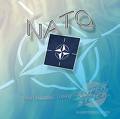NATO Strengthens Position In Central Asia Against Russia, China

NATO is strengthening its positions in Central Asia, for the first time inviting Kazakhstan, Kyrgyzstan, Uzbekistan and Tajikistan to its Chicago summit on May 20 and 21 in hopes of expanding partnerships with the countries. Now, NATO has only cargo transit deals in the region but is eyeing new military bases to compete with Russia and China.
The summit will deal with the alliance’s new policy on Central Asia. The above-mentioned countries were invited to the Afghanistan meeting as they provide transit for alliance forces in the country.
NATO openly speaks about its plans to deploy its troops in Central Asia and the invited countries are perfectly aware of it. Now they are thinking of how to get the most out of this situation, says political analyst and chief editor of Ferghana.ru web portal, Daniil Kislov:
“NATO’s so-called Northern Distribution Network involves mainly Uzbekistan, Tajikistan and Turkmenistan. I think those countries will be discussing the cost and benefits they can get from NATO in exchange for their transit services.”
Formally, NATO invited the countries’ Presidents – Nursultan Nazarbayev, Almazbek Atambayev, Emomalii Rahmon and Islam Karimov – to Chicago, but they are sending their foreign minister instead. This is a certain political strategy. On the one hand, the US will not be blamed for cooperating with “dictators” while the presidents will not take part in a summit arranged by the alliance – a competitor, as the Central Asian nations are part of the CSTO [Collective Treaty Security Organization] and SCO [Shanghai Cooperation Organization] .
NATO’s aspirations may cause negative reactions from Moscow and Beijing, as they venture into traditional Russian and Chinese zones of influence, says the head of the Center for Strategic Forecast Sergey Grinyaev:
“NATO showed its interest in Central Asia already 10 year ago by deploying its bases in the region, and now plans to make this cooperation more formal to pave the way for Central Asian countries’ membership.”
NATO seems to be irritated with the latest CSTO summit as it conflicts with its interests.
Experts believe that NATO’s intentions are not just security in Central Asia but also deterring Russia’s and Chin’s growing influence in the region. So let’s wait and see how Central Asia will react to Brussels’ proposals.

